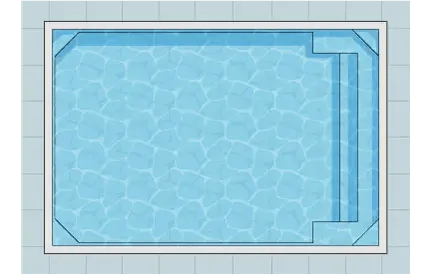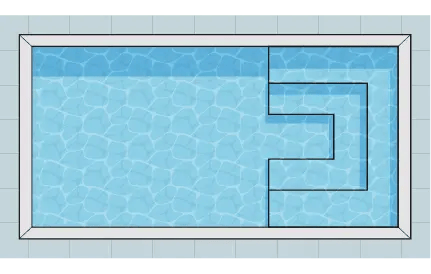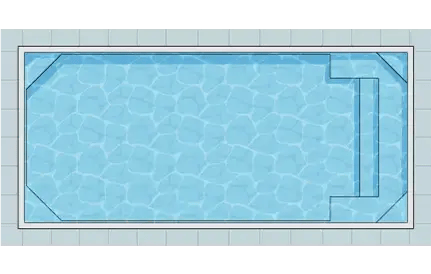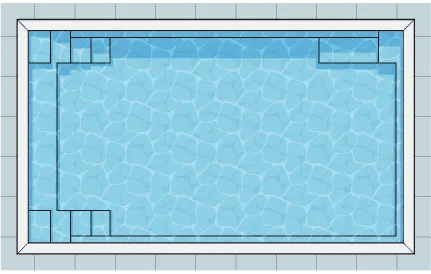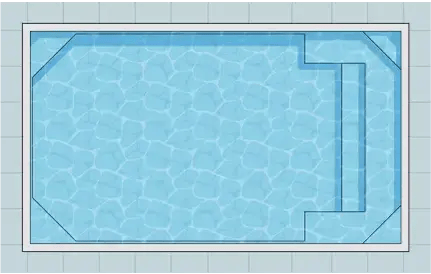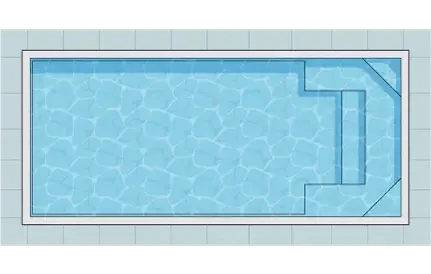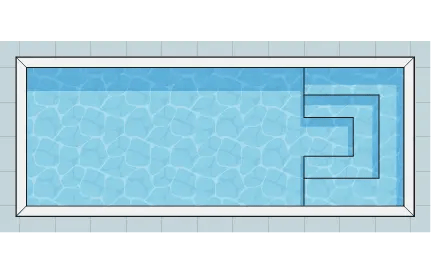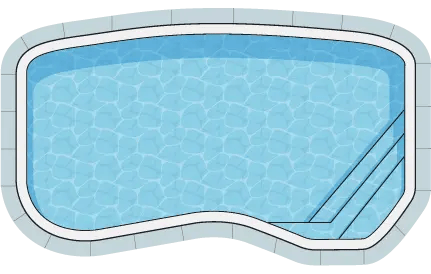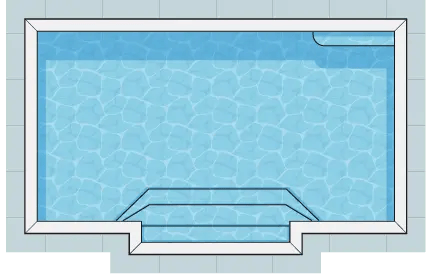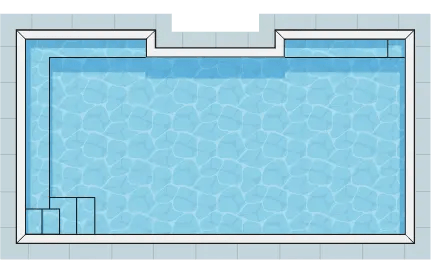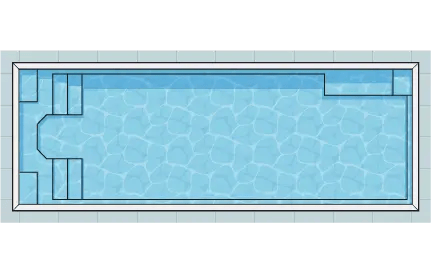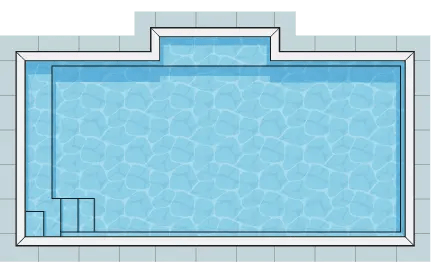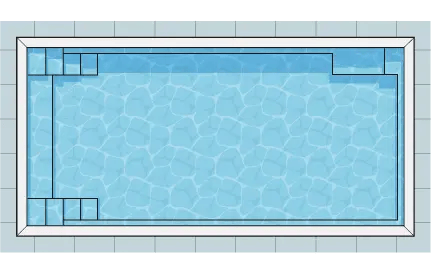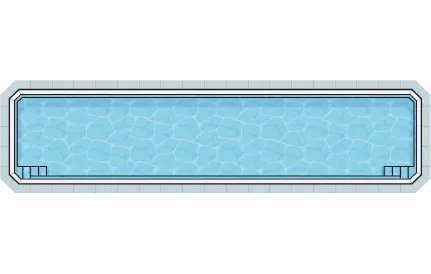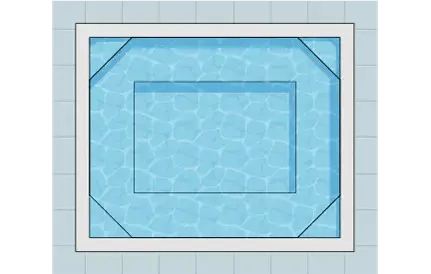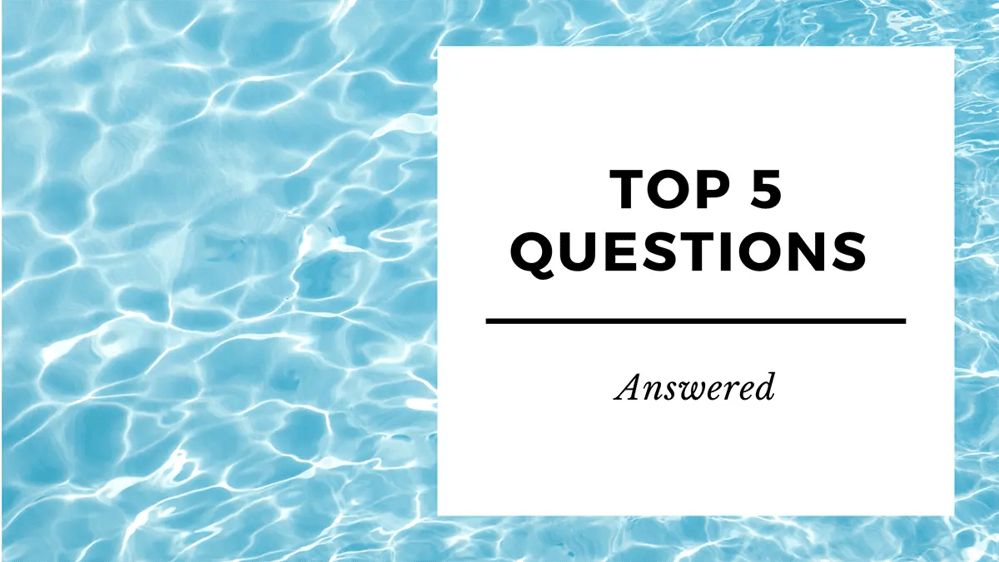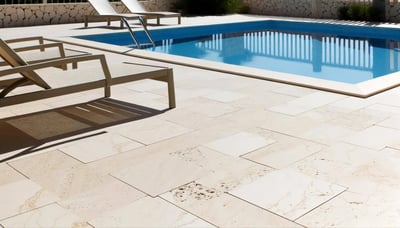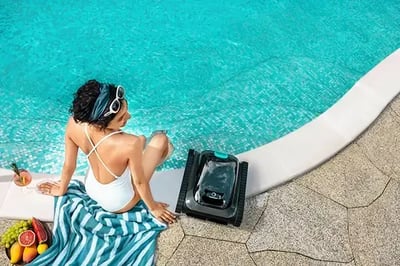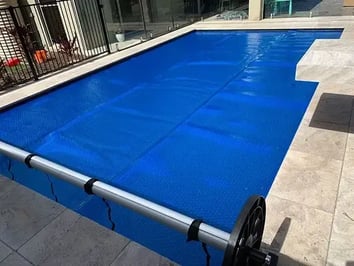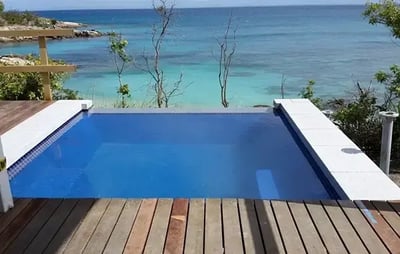Thinking about buying a fibreglass pool but still have some questions? We’ve put together the top 5 questions to help you on your pool buying journey. If your question isn’t here, give us a call and our experienced team will help.
1. What is a Fibreglass Pool?
A fibreglass pool is a precast resin fibreglass shell that is manufactured using a mould. These moulds come in various shapes and sizes, allowing for a range of pool designs. The fibreglass material used in the construction of these pools is reinforced with glass fibres, which provides strength and durability to the pool shell. The top gel coat of the pool is applied to the mould first then layers of resin chopped fibreglass and woven fibreglass are applied to create the shell. A good quality fibreglass pool will be made of multiple layers and be 100% fibreglass with no foam filling.
2. Are Concrete Pools Better than Fibreglass?
This is a good question and one that has many answers! Firsty, it depends on personal preference; if you have your heart set on a concrete pool because you want a specific shape for your backyard, then a concrete pool is better suited for you. A fibreglass pool design can not be modified as it is made from a mould, so there is less flexibility than a concrete pool. However, a fibreglass pool has many advantages. Let's check out the main advantages:
Fibreglass Pool Advantages
Low Maintenance: Fibreglass pools have a smooth, non-porous surface that inhibits algae growth and reduces the need for frequent scrubbing and chemical treatments, making them easier and more cost-effective to maintain than concrete pools.
Durability: Fibreglass pools are highly resistant to cracks and leaks, the ground beneath us is always shifting so a fibreglass pool is great as it’s less likely to crack compared to a concrete pool that has no flexibility.
Quick Installation: Fibreglass pools are prefabricated and delivered as a single unit, which significantly shortens the installation time compared to the time-consuming construction process of concrete pools. Fibreglass pools can be installed in 1-2 weeks whereas a concrete pool can take 3 months to be completed.
Smooth Finish: The fibreglass surface is smooth to the touch and doesn't have rough edges or abrasive textures, so no snagged swimmers, hooray!
Energy Efficiency: Fibreglass pools tend to retain heat better than concrete pools, so if you want a heated pool, then the savings on energy bills can be significant.
For a more in-depth look at a fibreglass pool vs. concrete, check out our article here.

3. How Much is a Fibreglass Pool?
A fibreglass pool cost depends on the swimming pool company you are using. If you are going down the DIY pool path then a fibreglass pool shell starts at $12,500 however this does not include installation. Installation costs would typically be approximately $13,000 for a flat level block with no soil issues and easy access. For an installed fibreglass plunge pool from a traditional all in one swimming pool company you can expect to pay at least $39,000.
Is a fibreglass pool cheaper than concrete?
Usually, it is yes, the pool is made off-site and then brought to site ready for installation. The installation is much quicker than a concrete pool so theres less time needed for an installer to be on site which is much more cost effective. The initial investment is more affordable, and long-term upkeep expenses are also reduced. The non-porous surface reduces the requirement for chemicals to combat algae. Additionally, if you choose to use a pool heater, the thermal characteristics of fibreglass ensure better heat retention compared to concrete pools.
We have a comprehensive cost breakdown in this article, so check it out for more info.
4. Can You Tile a Fibreglass Pool?
Put simply, yes you can but the real question is should you tile a fibreglass pool? Firstly, what is the reason you want to tile the pool shell? If it’s because you like the look of tiles then you can opt for a waterline tile. A waterline tile is a tile that is laid on the shell above the water line so it gives the illusion of being a fully tiled pool. However, the problem with tiling a fibreglass pool is that the tiles can fall off and this can quickly become an ongoing issue and a bit of a nightmare.
The beauty of a fibreglass pool is that you have a non porous surface so you have much less maintenance than a concrete pool where there are grout lines which can quickly become covered in algae. Once algae penetrates the grout you will need to use more chemicals to get it under control. Additionally, tiling can be costly so its another expense that you will need to budget for.
Fibreglass pool shells have come a long way in the last 10 years and come in an array of colours. The gel coat used today can even be a custom colour so if you really want a certain look for your pool, ask the manufacturer if you can have your very own custom colour pool shell.
5. Can Fibreglass Pools be Above-Ground?
Yes they can! However, it needs to be a fibreglass pool that is specifically for above ground installation. An above ground fibreglass pool is made with engineered reinforcement for an above ground installation. If you have a sloped property where an inground fibreglass pool isn't feasible, this pool type is an ideal solution. Due to the extra ribbing and reinforcement an above ground pool is generally more expensive than an inground fibreglass pool. However, you will save money on the excavation that an inground pool would require.
If you need an above ground pool then its important to speak with the manufacturer as the engineering for this type of installation needs to be precise. The pool company you’re buying the pool from should allow you to talk through your design requirements with the manufacturer as their experience in this area is crucial.
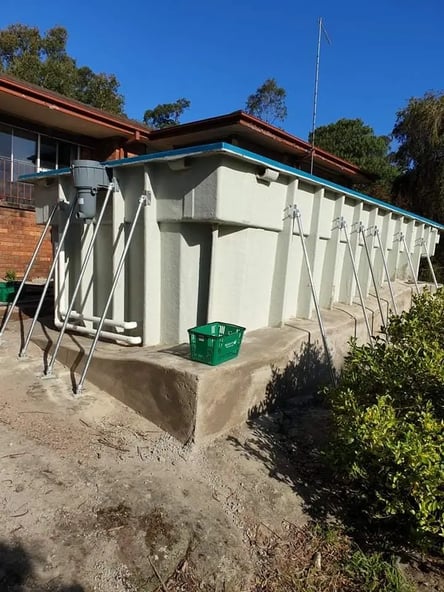
Still have more questions? Call our friendly, experienced team and we can help.







